Jesse Harder
Automated Graph Genetic Algorithm based Puzzle Validation for Faster Game Design
Feb 21, 2023Abstract:Many games are reliant on creating new and engaging content constantly to maintain the interest of their player-base. One such example are puzzle games, in such it is common to have a recurrent need to create new puzzles. Creating new puzzles requires guaranteeing that they are solvable and interesting to players, both of which require significant time from the designers. Automatic validation of puzzles provides designers with a significant time saving and potential boost in quality. Automation allows puzzle designers to estimate different properties, increase the variety of constraints, and even personalize puzzles to specific players. Puzzles often have a large design space, which renders exhaustive search approaches infeasible, if they require significant time. Specifically, those puzzles can be formulated as quadratic combinatorial optimization problems. This paper presents an evolutionary algorithm, empowered by expert-knowledge informed heuristics, for solving logical puzzles in video games efficiently, leading to a more efficient design process. We discuss multiple variations of hybrid genetic approaches for constraint satisfaction problems that allow us to find a diverse set of near-optimal solutions for puzzles. We demonstrate our approach on a fantasy Party Building Puzzle game, and discuss how it can be applied more broadly to other puzzles to guide designers in their creative process.
Towards Interactive Training of Non-Player Characters in Video Games
Jun 03, 2019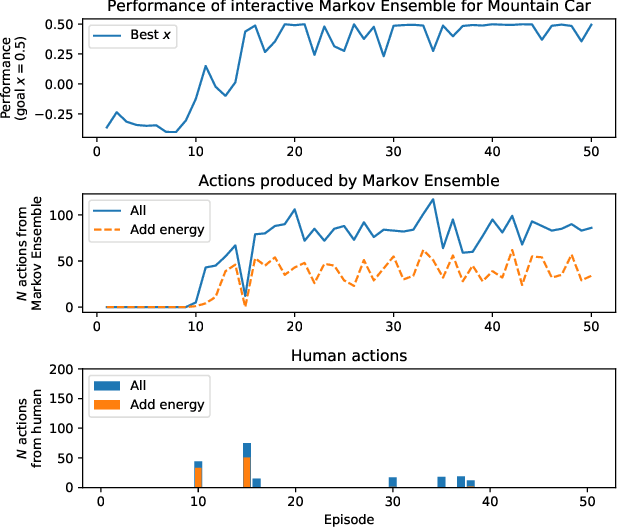
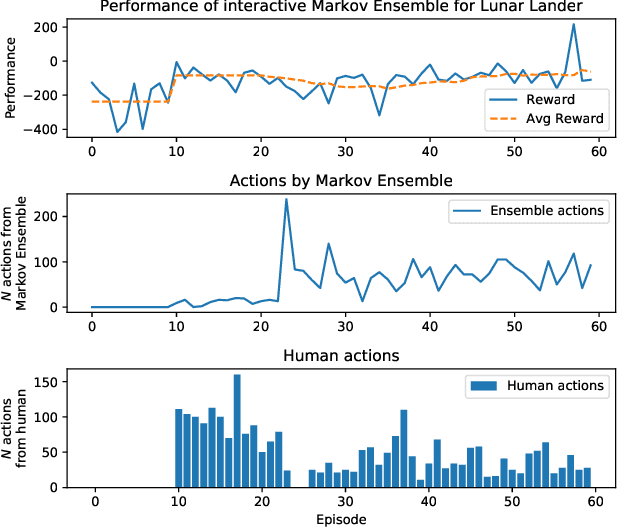
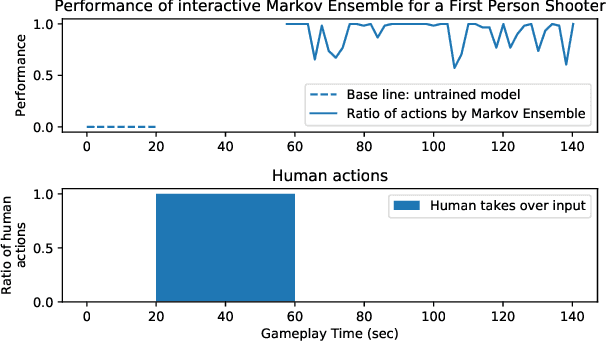
Abstract:There is a high demand for high-quality Non-Player Characters (NPCs) in video games. Hand-crafting their behavior is a labor intensive and error prone engineering process with limited controls exposed to the game designers. We propose to create such NPC behaviors interactively by training an agent in the target environment using imitation learning with a human in the loop. While traditional behavior cloning may fall short of achieving the desired performance, we show that interactivity can substantially improve it with a modest amount of human efforts. The model we train is a multi-resolution ensemble of Markov models, which can be used as is or can be further "compressed" into a more compact model for inference on consumer devices. We illustrate our approach on an example in OpenAI Gym, where a human can help to quickly train an agent with only a handful of interactive demonstrations. We also outline our experiments with NPC training for a first-person shooter game currently in development.
Winning Isn't Everything: Training Human-Like Agents for Playtesting and Game AI
Mar 25, 2019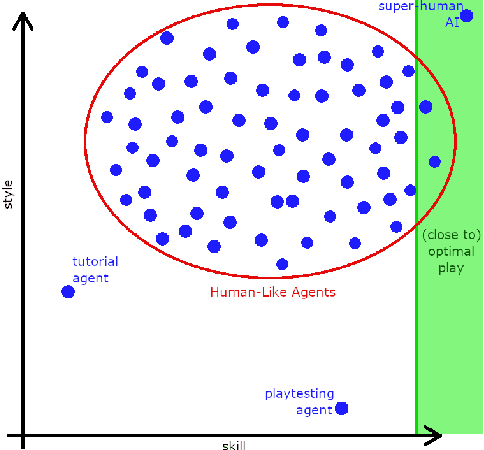

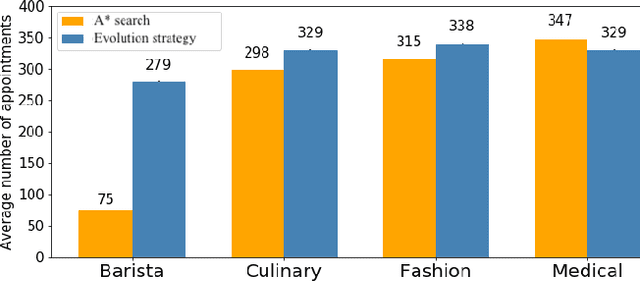

Abstract:Recently, there have been several high-profile achievements of agents learning to play games against humans and beat them. We consider an alternative approach that instead addresses game design for a better player experience by training human-like game agents. Specifically, we study the problem of training game agents in service of the development processes of the game developers that design, build, and operate modern games. We highlight some of the ways in which we think intelligent agents can assist game developers to understand their games, and even to build them. Our early results using the proposed agent framework mark a few steps toward addressing the unique challenges that game developers face.
 Add to Chrome
Add to Chrome Add to Firefox
Add to Firefox Add to Edge
Add to Edge